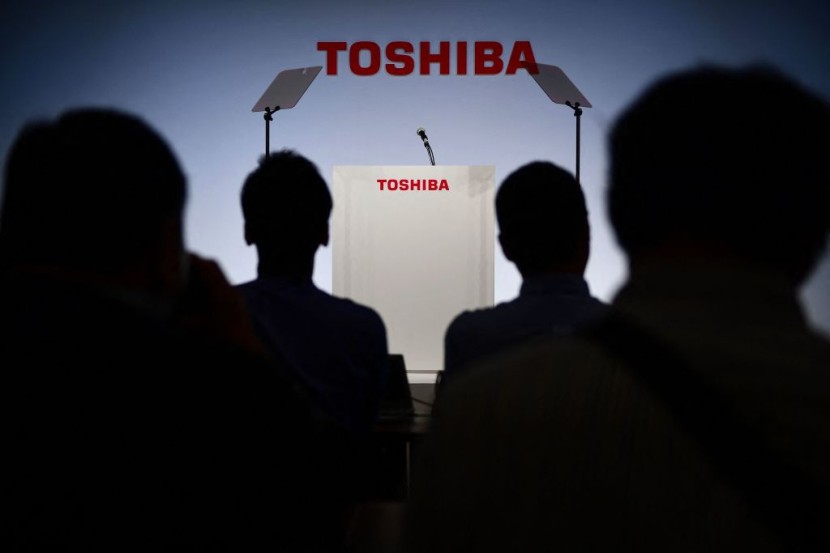
Toshiba, a venerable Japanese conglomerate with a history dating back to 1875, is bidding farewell to its 74-year-long stock market presence.
A consortium led by Japan Industrial Partners (JIP), a private equity firm, has successfully acquired a majority stake of 78.65% in the company, enabling them to finalize a $14 billion deal to take Toshiba secret, as per AP News.
Toshiba Goes Private: $14 Billion Deal Seals Its Fate
This move could see Toshiba's shares delisted from the stock market by the close of this year. Toshiba, whose origins lie in the production of telegraph equipment, has been a prominent figure in Japan's corporate landscape.
It began trading its shares in May 1949 when the Tokyo Stock Exchange resumed operations in the post-World War II era. Over the years, Toshiba diversified its business operations, from home electronics to nuclear power plants.
For decades, it symbolized Japan's economic revival and technological prowess. In 1985, Toshiba achieved a significant milestone by introducing what it touted as "the world's first mass-market laptop computer."
However, the Tokyo-based conglomerate has encountered a series of substantial setbacks in recent years. "Toshiba's catastrophe is a consequence of inadequate corporate governance at the top," remarked Gerhard Fasol, CEO of business advisory firm Eurotechnology Japan.
In 2015, Toshiba admitted to inflating its profits by over $1 billion over six years and was slapped with a 7.37 billion yen ($47 million) fine-a record-breaking penalty in Japan. Two years later, the company revealed massive losses in its US nuclear power business, Westinghouse, leading to a 700 billion yen writedown, according to Reuters.
Memory Chip Sale and Controversies in Bid to Avoid Bankruptcy
To stave off bankruptcy, Toshiba sold its memory chip business in 2018, considered a jewel in its corporate portfolio. Toshiba fielded several takeover offers, including one from UK private equity group CVC Capital Partners in 2021, which declined. In the same year, the company was found to have colluded with the Japanese government to hinder the interests of foreign investors.
Fasol opined that Toshiba's status as a "national treasure" in the eyes of many Japanese, including the government, has contributed to its problems. This reverence for the company hindered necessary structural changes.
Toshiba initially proposed splitting the company into three separate entities to address its challenges. However, this plan was later revised, with the board opting for a division into two units. Before implementing this new plan, Toshiba's board considered JIP's proposal to take the company private.
"The company needs to radically reinvent itself after spinning off many of its core business units, notably its semiconductor group," noted Marc Einstein, Chief Analyst at Tokyo-based research and advisory firm ITR Corporation.
Toshiba's journey into private ownership mirrors a broader trend among Japanese firms seeking to avoid the demands and scrutiny of public shareholders. While this strategy allows them more freedom to enact significant changes and restructuring, it also raises questions about corporate governance and accountability.
As Toshiba enters this new phase in its long and storied history, its transformation will be closely watched to see if it can regain its footing and adapt to the evolving landscape of global business and technology, the BBC reported.








